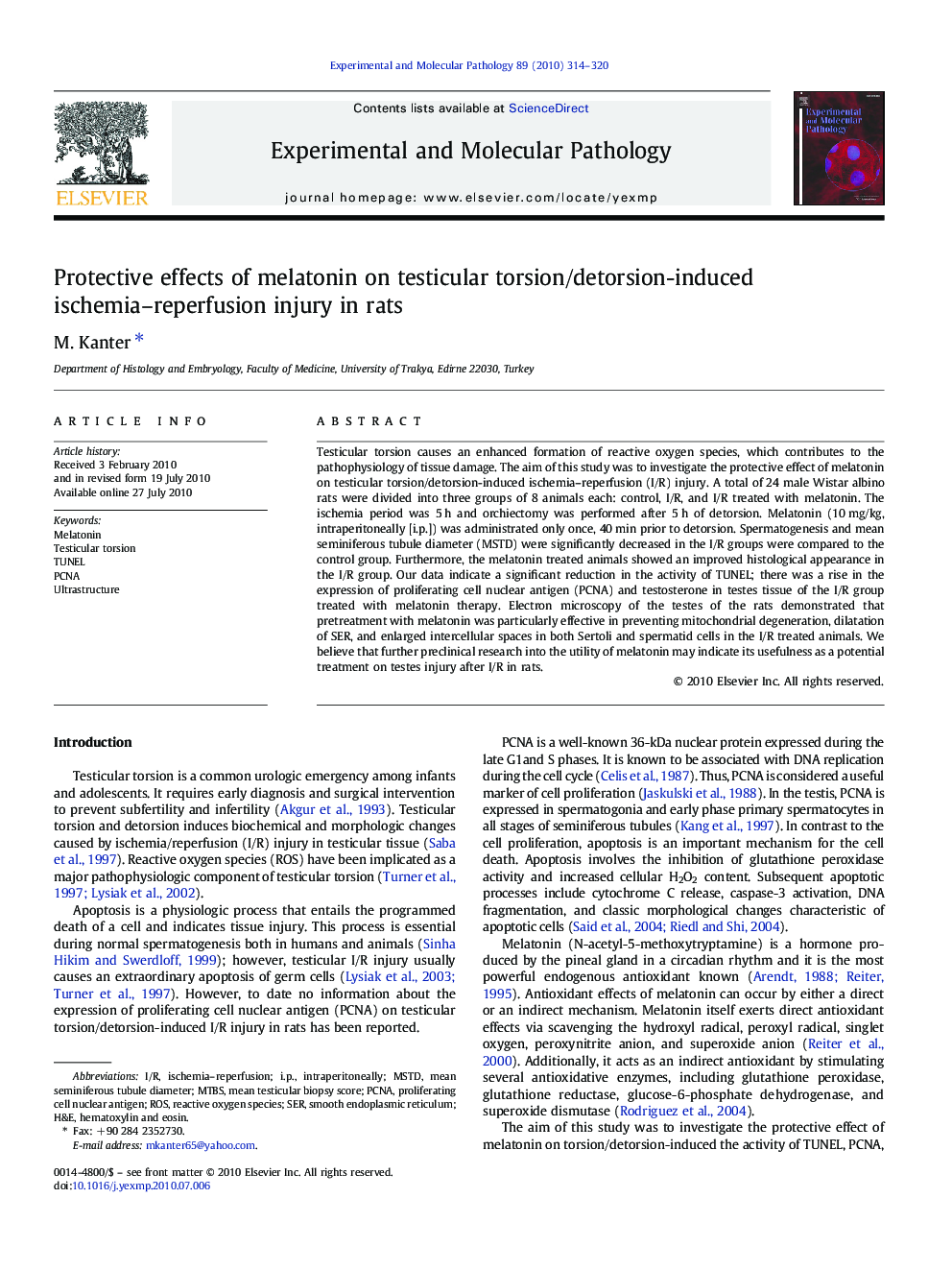| Article ID | Journal | Published Year | Pages | File Type |
|---|---|---|---|---|
| 2775492 | Experimental and Molecular Pathology | 2010 | 7 Pages |
Testicular torsion causes an enhanced formation of reactive oxygen species, which contributes to the pathophysiology of tissue damage. The aim of this study was to investigate the protective effect of melatonin on testicular torsion/detorsion-induced ischemia–reperfusion (I/R) injury. A total of 24 male Wistar albino rats were divided into three groups of 8 animals each: control, I/R, and I/R treated with melatonin. The ischemia period was 5 h and orchiectomy was performed after 5 h of detorsion. Melatonin (10 mg/kg, intraperitoneally [i.p.]) was administrated only once, 40 min prior to detorsion. Spermatogenesis and mean seminiferous tubule diameter (MSTD) were significantly decreased in the I/R groups were compared to the control group. Furthermore, the melatonin treated animals showed an improved histological appearance in the I/R group. Our data indicate a significant reduction in the activity of TUNEL; there was a rise in the expression of proliferating cell nuclear antigen (PCNA) and testosterone in testes tissue of the I/R group treated with melatonin therapy. Electron microscopy of the testes of the rats demonstrated that pretreatment with melatonin was particularly effective in preventing mitochondrial degeneration, dilatation of SER, and enlarged intercellular spaces in both Sertoli and spermatid cells in the I/R treated animals. We believe that further preclinical research into the utility of melatonin may indicate its usefulness as a potential treatment on testes injury after I/R in rats.
